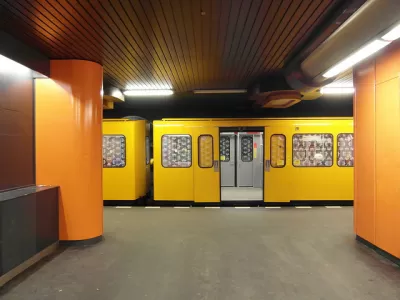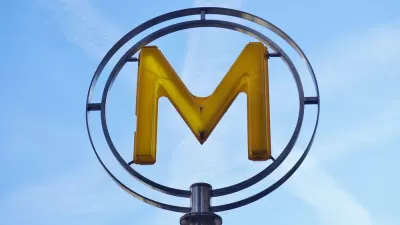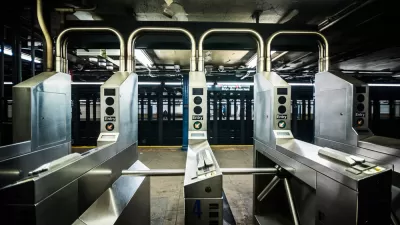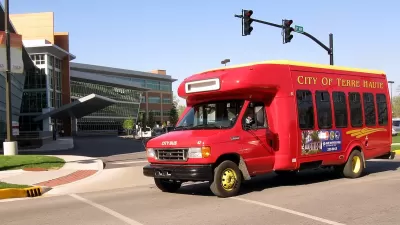The pros and cons of fare-free transit involve a range of issues, from operations logistics and outcomes to costs and fiscal priorities.

Alon Levy explores the debate around free public transportation and the results of fare-free programs implemented in various cities in the U.S. and Europe. Because free transit means agencies do not need to collect fares, it speeds up boarding and eliminates costs such as fare collection systems and some personnel. But, argues Levy, proof-of-payment systems address many of these issues, with relatively minimal costs for any ticket machines or fare inspectors.
He also makes the point that funds for subsidizing free fares have to come from some source and that money could be better used to address any of a range of system issues. "If there is money to make service free, there is money to spend on service improvements, including more metro lines, higher frequency, and wheelchair accessibility where it isn’t already present," adds Levy.
The size of the city and system are also relevant considerations in the discussion about free transit, according to Levy. In smaller cities, proof-of-payment enforcement is more difficult for inspectors to carry out. "The one caveat is that if the plan is to convert a city from one without public transportation to speak of to one with a good system, for example in Los Angeles, then in the future, revenue will become more important."
FULL STORY: Free Public Transportation

Planetizen Federal Action Tracker
A weekly monitor of how Trump’s orders and actions are impacting planners and planning in America.

Maui's Vacation Rental Debate Turns Ugly
Verbal attacks, misinformation campaigns and fistfights plague a high-stakes debate to convert thousands of vacation rentals into long-term housing.

San Francisco Suspends Traffic Calming Amidst Record Deaths
Citing “a challenging fiscal landscape,” the city will cease the program on the heels of 42 traffic deaths, including 24 pedestrians.

Defunct Pittsburgh Power Plant to Become Residential Tower
A decommissioned steam heat plant will be redeveloped into almost 100 affordable housing units.

Trump Prompts Restructuring of Transportation Research Board in “Unprecedented Overreach”
The TRB has eliminated more than half of its committees including those focused on climate, equity, and cities.

Amtrak Rolls Out New Orleans to Alabama “Mardi Gras” Train
The new service will operate morning and evening departures between Mobile and New Orleans.
Urban Design for Planners 1: Software Tools
This six-course series explores essential urban design concepts using open source software and equips planners with the tools they need to participate fully in the urban design process.
Planning for Universal Design
Learn the tools for implementing Universal Design in planning regulations.
Heyer Gruel & Associates PA
JM Goldson LLC
Custer County Colorado
City of Camden Redevelopment Agency
City of Astoria
Transportation Research & Education Center (TREC) at Portland State University
Jefferson Parish Government
Camden Redevelopment Agency
City of Claremont





























